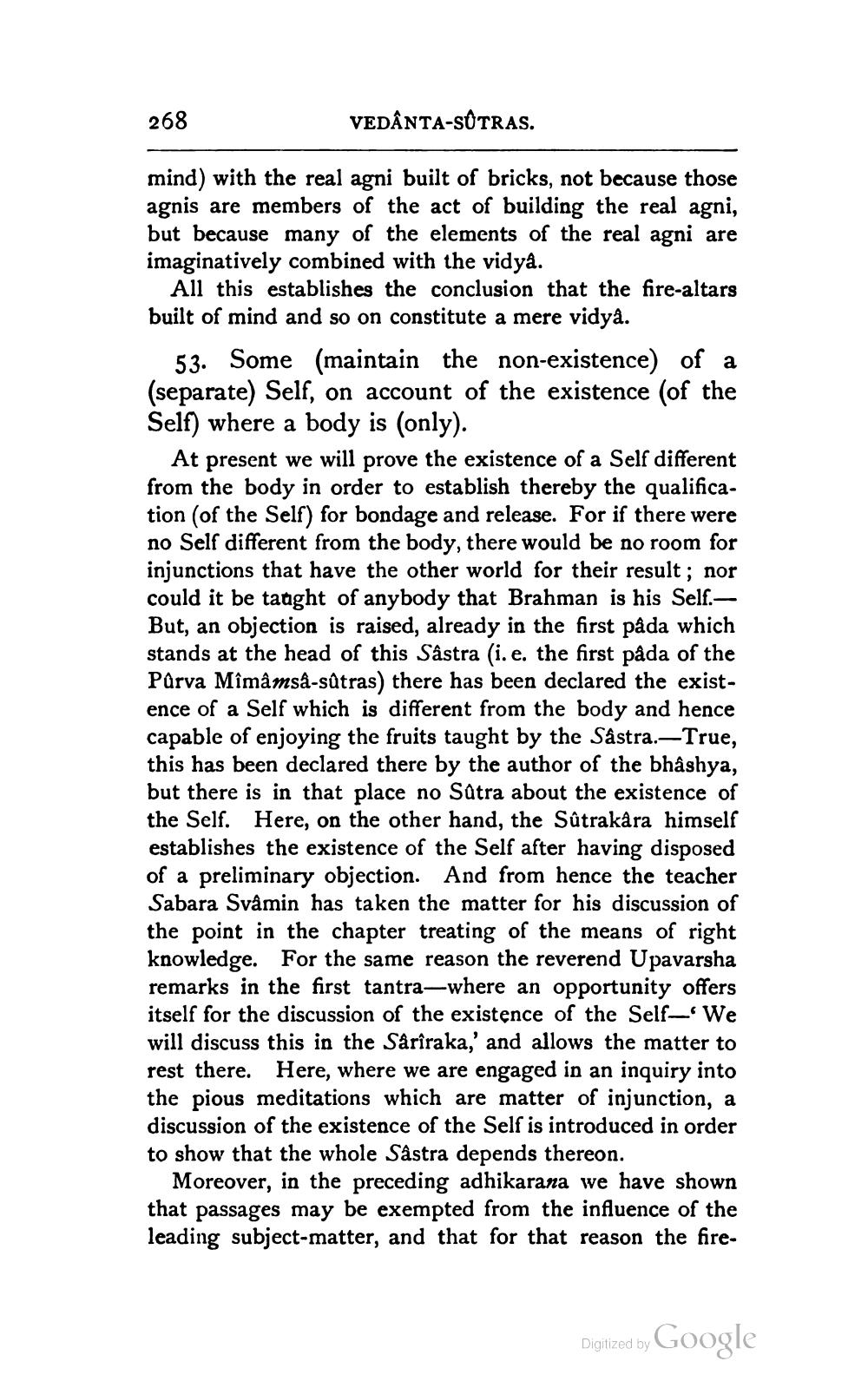________________
268
VEDÂNTA-SOTRAS.
mind) with the real agni built of bricks, not because those agnis are members of the act of building the real agni, but because many of the elements of the real agni are imaginatively combined with the vidya.
All this establishes the conclusion that the fire-altars built of mind and so on constitute a mere vidya.
53. Some (maintain the non-existence) of a (separate) Self, on account of the existence (of the Self) where a body is (only).
At present we will prove the existence of a Self different from the body in order to establish thereby the qualification (of the Self) for bondage and release. For if there were no Self different from the body, there would be no room for injunctions that have the other world for their result; nor could it be taught of anybody that Brahman is his Self.But, an objection is raised, already in the first påda which stands at the head of this Sastra (i.e. the first påda of the Parva Mîmâmså-sútras) there has been declared the existence of a Self which is different from the body and hence capable of enjoying the fruits taught by the Såstra.—True, this has been declared there by the author of the bhâshya, but there is in that place no Sutra about the existence of the Self. Here, on the other hand, the Sûtrakara himself establishes the existence of the Self after having disposed of a preliminary objection. And from hence the teacher Sabara Svâmin has taken the matter for his discussion of the point in the chapter treating of the means of right knowledge. For the same reason the reverend Upavarsha remarks in the first tantra-where an opportunity offers itself for the discussion of the existence of the Self-'We will discuss this in the Sårîraka,' and allows the matter to rest there. Here, where we are engaged in an inquiry into the pious meditations which are matter of injunction, a discussion of the existence of the Self is introduced in order to show that the whole Sastra depends thereon.
Moreover, in the preceding adhikarana we have shown that passages may be exempted from the influence of the leading subject-matter, and that for that reason the fire.
Digitized by
Digilzed by Google




